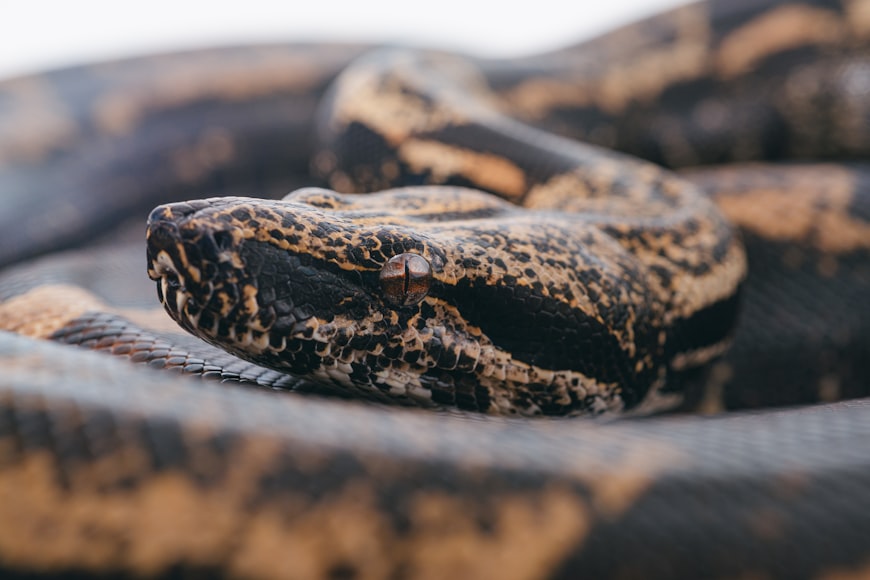Abyssinian Cat: An Outline of Traits and Characteristics
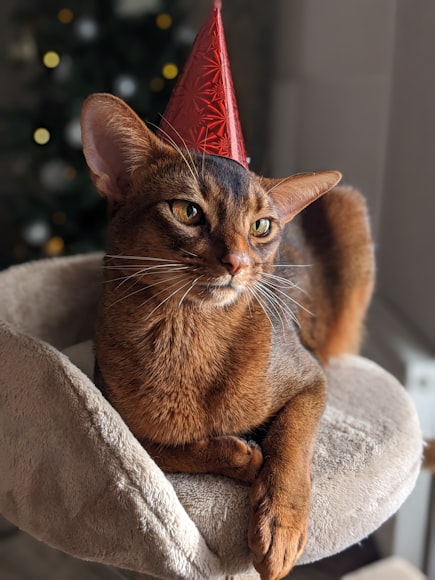
Introduction:
The Abyssinian cat, renowned for its striking ticked coat and distinctive personality, has captivated cat enthusiasts for centuries. This ancient breed is believed to have originated in Southeast Asia and has since become a beloved companion in homes worldwide. This article will provide an overview of the Abyssinian’s remarkable traits and characteristics, showcasing the unique qualities that make this breed so alluring.
Physical Appearance:
- Size: Medium-sized, ranging from 8 to 11 pounds in weight
- Body Type: Lithe and muscular, with a well-balanced build
- Head: Wedge-shaped with prominent cheekbones and a rounded crown
- Ears: Large and pointed, with flared bases
- Eyes: Almond-shaped and expressive, ranging from green to gold, hazel, or amber
- Coat: Short and dense, with a distinctive ticked pattern
- Ticking: The ticked pattern is the hallmark of the Abyssinian coat. Each hair shaft is banded with alternating dark and light colors, creating a shimmering and textured appearance.
Personality Traits:
- Intelligent: Abyssinian cats are highly intelligent and have an exceptional memory. They are quick learners and enjoy interactive games and puzzles.
- Playful: Abyssinians are playful and energetic cats that enjoy engaging in games with their human companions. They are known for their acrobatic skills and love to climb and jump.
- Affectionate: Despite their independent nature, Abyssinians are affectionate cats that enjoy cuddling and receiving attention. They form strong bonds with their owners and may become attached to specific family members.
- Vocal: Abyssinians are known for their distinctive vocalizations. They often communicate with their owners through a range of meows, chirps, and trills.
- Independent: While they enjoy human companionship, Abyssinians are also independent cats that can entertain themselves. They are not overly needy and can be left alone for reasonable periods.
Health and Care:
Abyssinian cats are generally healthy, with an average lifespan of 10-14 years. However, they may be prone to certain health conditions, including:
- Amyloidosis: A condition that can affect the kidneys and other organs
- Dental disease: Regular dental care is essential to prevent gum disease and other oral problems
- Hyperthyroidism: A condition that can cause increased appetite, weight loss, and hyperactivity
Abyssinian cats require regular grooming to maintain their healthy coat. Weekly brushing with a soft-bristled brush is recommended to remove dead hair and keep the coat free of mats. They also benefit from occasional nail trims and ear cleaning.
Conclusion:
The Abyssinian cat is a truly unique and remarkable breed that has captured the hearts of cat lovers worldwide. With its distinctive ticked coat, playful nature, and affectionate personality, the Abyssinian makes an exceptional companion for those who appreciate intelligence, independence, and beauty. Whether you are an experienced cat owner or a first-time pet parent, an Abyssinian cat is sure to bring joy, laughter, and endless entertainment to your life.
Origin and History
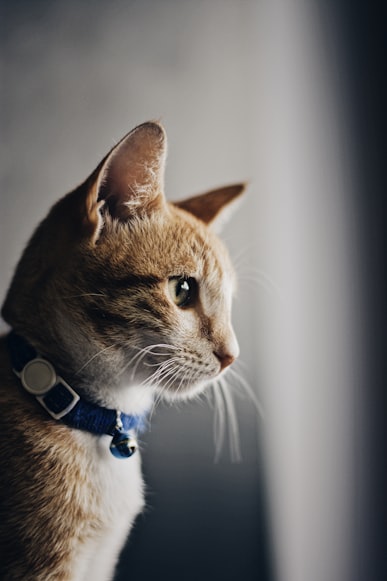
The Abyssinian cat, renowned for its distinctive ticked coat and captivating personality, boasts a rich and enigmatic history that spans centuries. This breed’s intriguing heritage traces its roots to the ancient lands of Ethiopia, where it is believed to have originated.
Ancient Origins in Ethiopia
The Abyssinian’s lineage can be traced back to the cats worshipped in the ancient temples of Ethiopia. These feline companions were revered as sacred beings, believed to possess divine qualities. Remnant statues and carvings from this era depict cats with striking physical similarities to the modern Abyssinian, suggesting a strong connection between the breed and its ancient ancestry.
Introduction to Europe in the Late 1800s
The Abyssinian was first introduced to Europe in the late 1800s by British soldiers returning from the Abyssinian War of 1868. These soldiers brought several cats with them, including a female named Zula. Zula, and subsequent Abyssinians imported later, captivated British cat enthusiasts with their exotic looks and gentle demeanor.
The breed quickly gained popularity in cat shows and became a favorite among feline aficionados. By the early 1900s, the Abyssinian had established itself as a distinct and recognized breed, with its own set of breed standards.
Unveiling the Abyssinian’s Unique Traits
The Abyssinian is renowned for its distinctive physical characteristics, which set it apart from other cat breeds:
- Ticked Coat: The Abyssinian’s coat is ticked, meaning each individual hair has multiple bands of color. This unique trait creates the illusion of depth and movement, giving the cat its characteristic “agouti” appearance.
- Bunny Ears: The Abyssinian’s ears are large and pointed, giving it a playful and alert expression.
- Expressive Eyes: The Abyssinian’s eyes are large and expressive, often ranging in color from amber to green. They are known for their depth and intelligence.
- Athletic Body: The Abyssinian has a muscular and agile body, with long, slender legs and a tapering tail. It is an active and playful cat that enjoys climbing and chasing.
Personality and Temperament
The Abyssinian is not only striking in appearance but also known for its affectionate and playful nature. Here are some key personality traits:
- Affectionate: Abyssinians are highly affectionate and enjoy human interaction. They often seek out attention from their owners and form strong bonds with them.
- Intelligent: Abyssinians are intelligent and curious cats. They are quick learners and enjoy playing games and solving puzzles.
- Playful: Abyssinians are playful and energetic cats. They love to chase toys and interact with their owners in a playful manner.
- Social: Abyssinians are social cats that get along well with other cats, dogs, and even children. They are known for their gentle and tolerant nature.
Preserving the Legacy
The Abyssinian cat is a testament to the rich and diverse feline heritage that exists around the world. It is a breed that has captivated cat enthusiasts for centuries, and its unique combination of physical traits and personality continues to make it a beloved companion today.
As pet bloggers, it is our responsibility to preserve the legacy of the Abyssinian by educating others about its fascinating history and promoting responsible breeding practices that ensure the health and well-being of this extraordinary breed for generations to come.
Physical Appearance
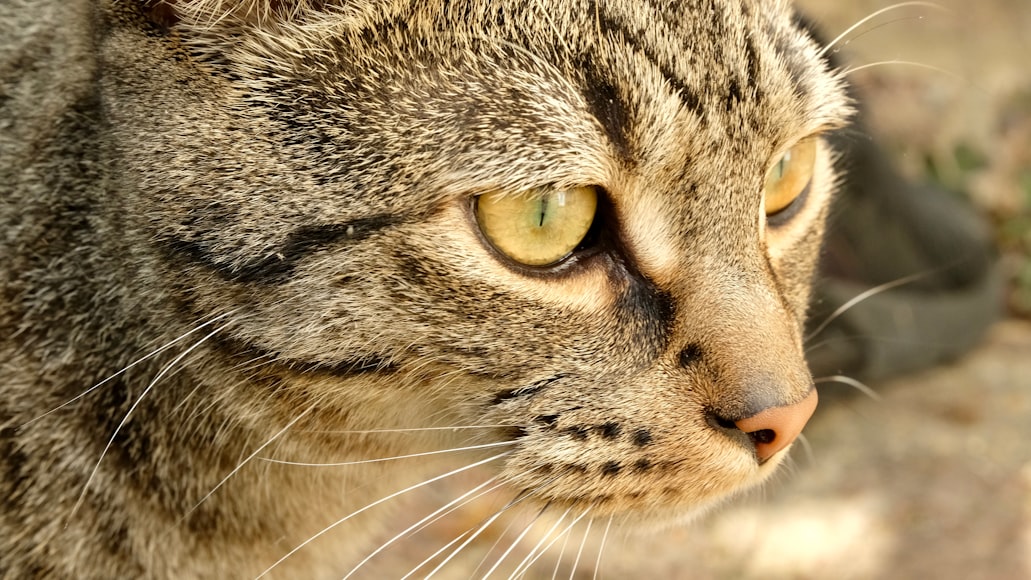
The Abyssinian cat, an ancient and captivating breed, is renowned for its striking physical appearance characterized by a muscular build, a distinctive ticked coat, and captivating expressive eyes.
Medium-Sized with a Muscular Build
Abyssinians are medium-sized cats, typically weighing between 6 and 10 pounds. They possess a well-proportioned and athletic build, with strong muscles and a flexible body that allows them to be agile and graceful. Their lean and muscular frames exude a sense of power and energy that belies their relatively small size.
Distinctive “Ticked” Coat
The Abyssinian’s most distinctive feature is its stunning ticked coat, which is a hallmark of the breed. Each individual hair on the Abyssinian’s body is adorned with alternating bands of color, giving the coat an intriguing and mesmerizing appearance. This ticked pattern is known as “ticking,” and it creates a vibrant and multifaceted effect that varies depending on the angle of light.
The Abyssinian’s ticked coat typically comes in a range of colors, including ruddy, blue, chocolate, lilac, and fawn. Each color variation has its own unique charm, but all share the characteristic ticked pattern that distinguishes the breed.
Large, Expressive Eyes
The Abyssinian’s eyes are another captivating aspect of their physical appearance. Large, almond-shaped, and set wide apart, the Abyssinian’s eyes exude an air of intelligence and inquisitiveness. Their eyes are often a deep green or hazel, but they can also be gold or blue.
The Abyssinian’s eyes are highly expressive, reflecting their emotions and moods. They can communicate a wide range of feelings through their eyes, from curiosity and playfulness to affection and attentiveness.
Physical Variations
While the general physical characteristics of Abyssinians are consistent, there can be slight variations within the breed. Some Abyssinians may have a shorter coat than others, while others may have a more pronounced ticked pattern. The color of their eyes can also vary from a deep green to a piercing blue. These variations add to the unique charm and diversity of the Abyssinian breed.
Health and Well-being
Abyssinians are generally healthy and robust cats with an average lifespan of 12 to 15 years. However, like all breeds, they are prone to certain health conditions, such as periodontal disease, hyperthyroidism, and kidney disease. Regular veterinary checkups and a balanced diet are essential for maintaining the Abyssinian’s health and well-being.
Conclusion
The Abyssinian cat is a truly remarkable feline, with a distinctive physical appearance that sets it apart from other breeds. Its muscular build, ticked coat, and expressive eyes create a captivating and unforgettable presence. While there may be slight variations within the breed, all Abyssinians share a common thread of elegance, intelligence, and allure.
Temperament
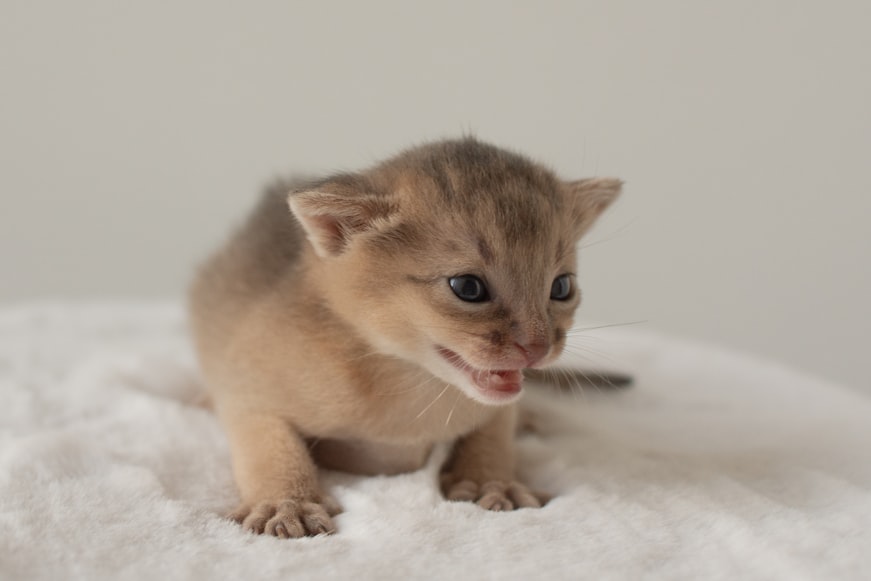
The Abyssinian cat, with its vibrant coat, piercing eyes, and distinctive ticked fur, is an embodiment of feline charm. Beyond its captivating physical attributes, this enigmatic breed possesses a remarkable temperament that makes it a beloved companion to discerning cat enthusiasts.
Unveiling the Abyssinians’ Intellectual Brilliance
Abyssinians are renowned for their keen intellect and an insatiable thirst for knowledge. They are observant creatures that enjoy exploring their surroundings, seeking out new experiences and opportunities for mental stimulation. Their quick-witted nature allows them to learn tricks and commands with ease, making them excellent candidates for interactive play and training.
Frolicking and Affection: The Playful and Affectionate Side
Beneath the Abyssinian’s curious exterior lies a playful and affectionate spirit. They are renowned for their love of games and revel in chasing toys, scaling cat trees, and engaging in playful antics. This playful demeanor extends to their interactions with humans, as Abyssinians thrive on companionship and enjoy cuddling, purring, and headbutting their beloved owners.
Vocalizing their Thoughts: A Symphony of Feline Communication
One of the most distinctive characteristics of the Abyssinian is its vocal nature. These cats are not shy about expressing themselves through a wide range of vocalizations. From chirps and trills to meows and chatters, Abyssinians use their voices to communicate their thoughts, emotions, and desires. While some may find this vocalization excessive, it is an integral part of their charm and an endearing trait that adds to their overall personality.
The Joy of Owning an Abyssinian: A Purrfect Companion
The Abyssinian cat’s unique blend of intelligence, playfulness, and affection makes it an ideal choice for those seeking a feline companion that is both entertaining and engaging. Their ability to learn, their love of games, and their vocal expressions create a dynamic and captivating bond between cat and owner.
Enriching the Life of an Abyssinian: Essential Considerations
To ensure the well-being and happiness of your Abyssinian companion, it is crucial to provide them with an environment that caters to their specific needs:
- Mental Stimulation: Engage their minds with interactive toys, puzzle feeders, and training games.
- Playtime: Dedicate ample time each day for playtime, allowing them to release their energy and engage in their playful antics.
- Companionship: Abyssinians thrive on companionship. Consider adopting a second cat or spending quality time with them each day.
- Grooming: Regular brushing is essential for maintaining their beautiful ticked coat.
- Vocalization: While vocalization is a natural part of the Abyssinian temperament, it can sometimes become excessive. Consider providing them with quiet spaces and distracting them with toys when necessary.
The Abyssinian’s Legacy: A Tapestry of Distinctive Traits
The Abyssinian cat, a true feline enigma, captivates hearts with its unique blend of intelligence, playfulness, and vocalization. Their unwavering curiosity, affectionate nature, and distinctive communication style create a truly remarkable companion for those who appreciate the complexities of the feline world.
Health and Lifespan
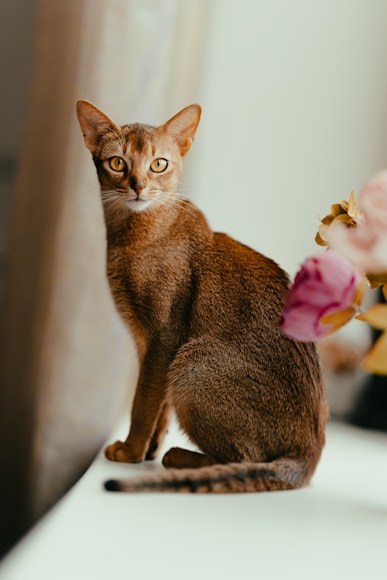
Embarking on a journey with an Abyssinian cat is a delightful experience. These captivating felines are not only mesmerizing to behold but also possess a remarkable health profile and a respectable lifespan. Understanding their health predispositions and ensuring proper care can help you nurture a harmonious and fulfilling bond with your Abyssinian companion.
Generally Healthy with a Promising Lifespan
Abyssinian cats are known for their overall good health and robust constitution. With proper care and attention, they can grace your home with their presence for an average of 12 to 15 years. This impressive lifespan is a testament to their innate resilience and adaptability.
Susceptibility to Certain Health Issues
While generally healthy, Abyssinian cats may be prone to specific health conditions, just like any other breed. Being aware of these potential health concerns allows for proactive measures to maintain their well-being.
Hyperthyroidism
Hyperthyroidism is a condition in which the thyroid gland produces excessive thyroid hormones. This can lead to a range of symptoms, including weight loss, increased appetite, hyperactivity, and heart problems. Regular veterinary checkups and blood tests can help detect and manage hyperthyroidism effectively.
Dental Disease
Dental disease is a common issue among Abyssinian cats and can manifest as gingivitis, periodontitis, and cavities. Poor dental hygiene can contribute to pain, discomfort, and even more serious health problems. Regular dental cleanings and preventive measures, such as brushing your cat’s teeth, are crucial for maintaining their oral health.
Other Health Considerations
Other potential health concerns that Abyssinian cats may encounter include:
- Amyloidosis: A rare but serious condition that affects multiple organs and tissues.
- Progressive Retinal Atrophy (PRA): A degenerative eye disease that can lead to blindness.
- Patellar Luxation: A condition where the kneecap dislocates.
Preventive Measures for a Healthy Life
To ensure your Abyssinian cat lives a long and healthy life, consider these preventive measures:
- Regular Veterinary Care: Schedule routine checkups with your veterinarian to monitor your cat’s health and detect any potential issues early on.
- Proper Nutrition: Provide your cat with a balanced and nutritious diet that meets their specific needs and age requirements.
- Exercise: Engage your Abyssinian cat in regular play and exercise to maintain their physical and mental well-being.
- Dental Hygiene: Brush your cat’s teeth regularly and schedule dental cleanings as recommended by your veterinarian.
- Vaccinations: Keep your cat up-to-date with essential vaccinations to protect them from preventable diseases.
Conclusion
Abyssinian cats are remarkable companions that can brighten your life with their charm and affection. While generally healthy with a promising lifespan, they may be susceptible to certain health issues. By being aware of these potential health concerns and implementing preventive measures, you can provide your Abyssinian cat with the best possible care, ensuring they live a long, healthy, and fulfilling life by your side. Remember, a healthy cat makes for a happy home.
Care and Grooming
The Abyssinian cat, renowned for its distinctive ticked coat and playful personality, holds a special place in the hearts of cat enthusiasts. As responsible pet owners, it is crucial to provide these feline companions with optimal care and grooming practices to ensure their well-being and maintain their exquisite appearance.
Weekly Brushing for a Healthy Coat
The Abyssinian’s unique ticked coat, characterized by alternating bands of light and dark colors, requires regular brushing to maintain its luster and prevent matting. A fine-toothed metal comb or slicker brush is recommended for this task. Weekly brushing helps remove loose hair, dirt, and debris, promoting a healthy and vibrant coat.
Occasional Bathing for Hygiene
Unlike some cats, Abyssinians generally do not require frequent bathing. However, occasional bathing is necessary for maintaining their skin and coat hygiene. Use a mild, pH-balanced cat shampoo and lukewarm water, avoiding harsh detergents or fragrances that can irritate their delicate skin. Rinse thoroughly and towel dry to prevent discomfort.
Regular Nail Trims and Dental Cleanings
Just like humans, cats require regular nail trims to prevent overgrowth and discomfort. Using a nail clipper specifically designed for cats, gently trim the tips of their nails, taking care not to cut into the quick. Dental hygiene is equally important. Regular brushing with a cat-approved toothpaste helps remove plaque and prevent periodontal disease.
Additional Care Considerations
In addition to the essential grooming practices outlined above, there are several other care considerations to keep in mind for Abyssinian cats:
- Nutrition: Provide a high-quality diet that meets their nutritional needs, taking into account their age, weight, and activity level.
- Exercise: Abyssinians are known for their active and playful nature. Ensure they have ample opportunities for exercise and mental stimulation through interactive toys, scratching posts, and regular play sessions.
- Health Monitoring: Regular veterinary checkups are essential for early detection and treatment of any health issues. Vaccinations, parasite control, and routine blood tests are vital for maintaining their overall health.
- Environmental Enrichment: Provide a stimulating environment for your Abyssinian cat with vertical spaces for climbing, scratching toys, and interactive puzzles to engage their curious minds.
Benefits of Proper Care and Grooming
Providing proper care and grooming for your Abyssinian cat offers numerous benefits, including:
- Improved Coat Health: Regular brushing prevents matting, removes loose hair, and promotes a shiny and healthy coat.
- Hygiene and Comfort: Occasional bathing keeps your cat’s skin and coat clean, reducing the risk of infections and discomfort.
- Physical Health: Nail trims and dental cleanings prevent overgrown nails and dental problems, contributing to overall feline well-being.
- Bonding and Interaction: Grooming sessions provide opportunities for bonding and interaction with your cat, strengthening the human-animal connection.
Conclusion
Caring for an Abyssinian cat is a rewarding experience that requires dedication and a deep understanding of their unique needs. By adhering to the essential grooming practices outlined above and attending to their additional care considerations, you can ensure the optimal health, happiness, and stunning appearance of your feline companion. Remember, a well-groomed and healthy cat is a content cat, bringing endless joy and companionship to your life.
Activity Level and Exercise
The Abyssinian cat, an ancient and captivating breed known for its striking ticked coat, possesses a dynamic personality that thrives on ample activity and exercise. Their high energy levels and inquisitive nature demand an environment that caters to their innate need for mental and physical stimulation. Understanding and fulfilling these requirements is crucial for the well-being and happiness of your beloved feline friend.
Unleashing the Abyssinian’s High Energy
Abyssinians are renowned for their boundless energy and playful disposition. They are natural explorers, constantly seeking out new adventures and opportunities to engage in interactive play. Their agility, speed, and athleticism make them excellent climbers and jumpers, requiring an environment that provides ample vertical space and challenges.
Regular Play and Exercise: Essential Components of an Abyssinian’s Daily Routine
To satisfy the Abyssinian’s high energy levels, incorporate regular play and exercise into their daily routine. Engage them in interactive games, such as chasing a wand toy, retrieving a ball, or solving a puzzle feeder. Aim for at least 30 minutes of dedicated play each day, divided into several shorter sessions.
Toys: A Haven of Stimulation for Curious Minds
Provide an assortment of toys that cater to the Abyssinian’s diverse interests. Rotate their toy collection regularly, ensuring they have a constant stream of novel stimulation. Consider toys that encourage chasing, pouncing, and climbing, fulfilling their natural instincts.
Vertical Territory: A Kingdom of Adventure
Abyssinians adore perching on high vantage points, surveying their surroundings with feline curiosity. Equip their environment with scratching posts that reach substantial heights, allowing them to climb, scratch, and observe. Window perches are another excellent addition, providing a safe and stimulating haven where they can bask in the sunlight and watch the world go by.
Scratching: A Healthy and Instinctive Impulse
Scratching is an essential and instinctive behavior for Abyssinians, serving various functions such as marking territory, exercising their muscles, and maintaining the health of their claws. Provide them with several scratching surfaces, from traditional scratching posts to cardboard boxes and sisal mats.
Environmental Enrichment: A Symphony of Stimuli
Beyond toys and scratching posts, create an environment that encourages the Abyssinian’s natural curiosity and exploration. Introduce climbing structures, hiding places, and interactive puzzles that challenge their minds and keep them engaged. Fresh catnip can also provide a burst of playful energy, stimulating their senses and promoting activity.
Outdoor Adventures: A Taste of Nature’s Playground
If possible, harness-train your Abyssinian to enjoy the wonders of the outdoors. Supervised excursions to a secure backyard or catio allow them to explore the natural world, chase insects, and engage in stimulating activities that cater to their hunting instincts.
Consequences of Neglecting Activity Needs
Overlooked activity requirements can have detrimental effects on an Abyssinian’s well-being. Boredom and frustration may lead to destructive behaviors, such as scratching furniture or excessive vocalization. Insufficient exercise can contribute to obesity, joint issues, and behavioral problems.
Exercise Considerations for Senior Abyssinians
As Abyssinians age, their energy levels may decrease. Adapt their exercise routine accordingly, opting for gentler activities such as leisurely walks or playtime with wand toys. However, even senior Abyssinians require regular mental and physical stimulation to maintain their quality of life.
Conclusion
The Abyssinian cat’s remarkable energy and inquisitive nature demand an environment that caters to their innate need for activity and exercise. By providing regular play, exercise, toys, and an enriched environment, you can ensure the well-being and happiness of your beloved feline companion. Nurturing their high-energy spirit will forge an unbreakable bond and create a home where they can thrive and flourish.
Temperament and Personality
Renowned for their striking features and regal demeanor, Abyssinian cats possess a captivating temperament that has endeared them to cat enthusiasts worldwide. Their unique blend of independence, affection, and territoriality creates a complex yet endearing feline companion.
Independent and Self-Sufficient
Abyssinian cats embody the spirit of independence. They are capable of entertaining themselves for hours with their favorite toys or by engaging in playful antics. They rarely become overly needy or clingy, allowing their owners to enjoy both their company and their own space.
However, this independence does not equate to aloofness. Abyssinian cats enjoy spending time with their owners and will often perch nearby, observing their activities with keen interest. They may not always demand attention, but they appreciate it when it’s offered on their terms.
Affectionate and Loyal
Despite their independent nature, Abyssinian cats are extremely affectionate and devoted to their owners. They form strong bonds with their human companions and crave their attention and affection. They will often purr contentedly when being petted or cuddled, and they will readily seek out petting and playtime.
Abyssinians are also known for their loyalty. They are protective of their owners and will often stay close by their side, offering comfort and companionship.
Territorial and Commanding
Abyssinian cats have a strong sense of territory and may become protective of their space and resources. They can be territorial towards other cats, especially if they are unfamiliar or perceived as a threat. It’s important to socialize Abyssinians with other pets from a young age to minimize territorial aggression.
However, this territoriality does not extend to their owners. Abyssinians are typically very respectful of their human companions and will rarely display aggression towards them.
Other Notable Traits
In addition to their core temperament traits, Abyssinian cats are known for their intelligence, playfulness, and curiosity. They are quick learners and enjoy interactive games and puzzles. Their curiosity leads them to explore their surroundings and investigate new experiences.
Abyssinians are also very vocal cats. They have a distinctive “chirp” that they use to communicate with their owners and other cats. They may also meow or trill when they are excited or want attention.
Overall, the Abyssinian cat’s temperament is a delightful combination of independence, affection, territoriality, and other charming qualities. As companions, they are affectionate, loyal, and always entertaining, making them a joy to share life with.
Training and Intelligence
Abyssinian cats are renowned for their distinctive ticked coats and intelligent, inquisitive nature. Their sharp minds and eagerness to learn make them a joy to train. This article delves into the training and intelligence of Abyssinian cats, providing insights into how to effectively interact with these curious and affectionate felines.
Intelligence of Abyssinian Cats
Abyssinian cats possess a remarkable intelligence that manifests in various aspects of their behavior. They have an exceptional memory and can recall events and experiences long after they have occurred. Their keen observation skills allow them to notice subtle changes in their environment and react accordingly.
Studies have shown that Abyssinian cats perform well in problem-solving tasks. They can learn how to open doors, retrieve objects, and navigate mazes. Their ability to learn and adapt to new situations makes them highly trainable.
Training Abyssinian Cats
Training an Abyssinian cat is not only possible but also highly rewarding. These cats are eager to please and respond well to positive reinforcement. By using treats, praise, and play as rewards, you can effectively teach your Abyssinian various commands and tricks.
-
Positive Reinforcement: Positive reinforcement is the key to successful Abyssinian training. Rewarding good behavior with treats, cuddles, or play sessions encourages your cat to repeat the desired action.
-
Clicker Training: Clicker training is a powerful tool for training Abyssinian cats. By pairing a clicker sound with a treat, you can mark the exact moment your cat performs the desired behavior. This helps them understand which actions earn them rewards.
-
Patience and Consistency: Abyssinian cats may not learn new commands as quickly as certain other breeds, such as Border Collies. However, with patience, consistency, and positive reinforcement, you can achieve remarkable results.
Specific Commands and Tricks
Here are some specific commands and tricks you can train your Abyssinian cat:
- Sit: Teach your cat to sit by luring them with a treat and guiding their rear end down.
- Come: Call your cat’s name and reward them when they approach you.
- Stay: Once your cat knows how to sit, teach them to stay in place by saying “stay” and holding your hand out in front of them.
- Fetch: Some Abyssinian cats can be trained to fetch small objects, such as toys or balls.
- High-Five: Teach your cat to give you a high-five by holding a treat in front of their nose and guiding their paw to meet your hand.
Conclusion
Abyssinian cats are highly intelligent and trainable companions. With their eagerness to learn and respond well to positive reinforcement, these cats can be taught a variety of commands and tricks. By harnessing their intelligence and providing a supportive training environment, you can strengthen your bond with your Abyssinian cat and unlock their full potential. Remember to always approach training with patience, consistency, and a generous supply of treats!
Diet and Nutrition
Abyssinian cats are a vibrant and active breed known for their lively personalities and distinctive ticked coats. To maintain their well-being and vitality, providing a balanced and nutritious diet is paramount. This comprehensive guide will explore the essential components of an Abyssinian cat’s diet, ensuring optimal health and longevity.
High-Quality Cat Food
The foundation of an Abyssinian cat’s diet should be high-quality commercial cat food tailored specifically to their energy requirements. When selecting cat food, consider the following key factors:
- Protein Content: Abyssinian cats are active and require a diet high in protein to support their muscular bodies. Aim for a protein content of around 30-40%.
- Fat Content: Fats provide energy and essential fatty acids for skin and coat health. Select cat food with a fat content of around 15-20%.
- Carbohydrate Content: Carbohydrates are the primary source of energy for cats. However, Abyssinians are not very active feeders, so limit the carbohydrate content to around 10%.
- Moisture: Cats naturally have a low thirst drive. Choose cat food with a higher moisture content (around 70%) to ensure adequate hydration.
Essential Nutrients
In addition to the macronutrients mentioned above, Abyssinian cats require a range of essential nutrients to maintain optimal health:
- Taurine: An amino acid essential for heart and eye health.
- Arachidonic acid: A fatty acid important for growth and development.
- Vitamins A and E: Antioxidants that protect cells from damage.
- Minerals (calcium, phosphorus, magnesium): Essential for bone and teeth health, nerve function, and more.
Fresh Water
Regular access to fresh, clean water is crucial for Abyssinian cats. Cats have a naturally low thirst drive, so it’s important to encourage them to drink regularly. Provide multiple water bowls throughout the house, and consider using a cat fountain to make water more enticing.
Feeding Schedule
Abyssinian cats are not typically voracious eaters. Establish a regular feeding schedule and stick to it as much as possible. Feed your cat twice a day, providing approximately 3-4 ounces of food per meal. Adjust the amount of food as needed based on your cat’s activity level and weight.
Special Considerations
- Kittens: Kittens have higher nutritional requirements than adult cats. Provide them with kitten-specific food until they are fully grown, around 12 months of age.
- Seniors: Senior cats may need a diet with reduced calories and higher fiber content. Consult your veterinarian for recommendations.
- Allergies: Some Abyssinian cats may be allergic to certain ingredients in cat food. Monitor your cat’s food intake for signs of an allergic reaction, such as vomiting, diarrhea, or skin irritation.
Conclusion
Providing a balanced and nutritious diet is essential for maintaining the health and well-being of your Abyssinian cat. By understanding their specific dietary needs and adhering to the recommended guidelines, you can ensure that your feline companion enjoys a long and healthy life filled with vitality and joy. Remember to consult with your veterinarian regularly for personalized advice and to address any specific nutritional concerns.









